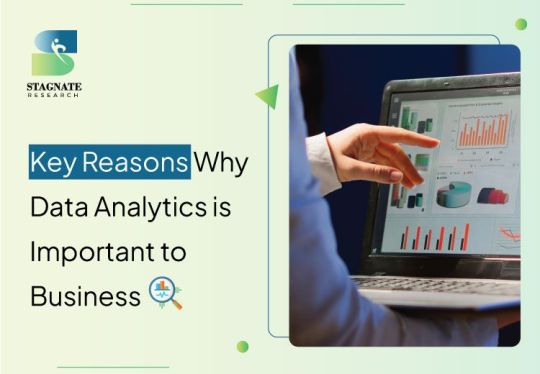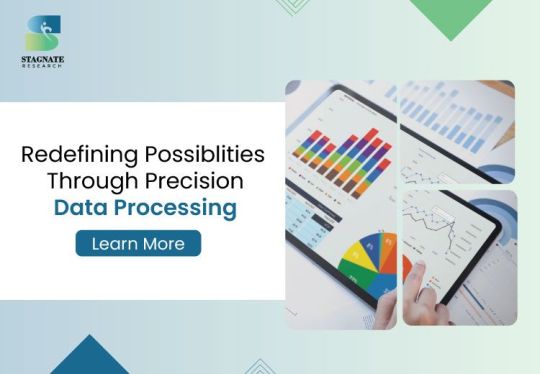#Data collection Company
Explore tagged Tumblr posts
Text
Your Guide to Success in Quantitative Research: 8 Practical Tips

Quantitative research plays a crucial role in fields like social sciences, business, healthcare, and education. It provides numerical data that can be analyzed statistically to identify patterns, relationships, and trends. However, excelling in quantitative research requires more than just crunching numbers.
1. Start with a Clear Research Question
The foundation of any successful research is a well-defined research question. This question guides the entire study, determining your methodology, data collection, and analysis. Ensure that your research question is specific, measurable, and aligned with the purpose of your study.
For example, instead of asking, "How do students perform in school?" a clearer question might be, "What is the relationship between study hours and academic performance in high school students?"
Tip: Before starting, spend time refining your question. This will save you time and effort during the research process.
2. Choose the Right Research Design
Quantitative research can take many forms, including experiments, surveys, and observational studies. Choosing the right design depends on your research objectives and the type of data you need. Are you testing a hypothesis?
Tip: Match your research design with your objectives to ensure you’re collecting the right kind of data.
3. Use Valid and Reliable Instruments
The tools you use to gather data—whether they’re questionnaires, tests, or measuring devices—must be both valid (measuring what you intend to measure) and reliable (producing consistent results over time).
Tip: If you’re developing your own instrument, pilot it first with a small group to check its validity and reliability. If using an existing tool, review past studies to confirm it works well for your research population.
4. Select an Appropriate Sample Size
A common mistake in quantitative research is working with a sample size that’s too small, which can lead to unreliable or inconclusive results. On the other hand, excessively large samples can waste resources. To avoid these pitfalls, conduct a power analysis to determine the optimal sample size for your study.
Tip: Use tools like G*Power to calculate the right sample size based on your research goals and the expected effect size. This ensures your findings are statistically significant and applicable to a larger population.
5. Ensure Random Sampling for Representativeness
Your findings will only be meaningful if your sample represents the broader population you’re studying. Random sampling ensures that every individual in the population has an equal chance of being selected, reducing bias and increasing the generalizability of your results.
Tip: Use random sampling methods (e.g., simple random sampling, stratified random sampling) to ensure your data is as representative as possible.
6. Minimize Bias in Data Collection
Bias can creep into any research process, affecting the accuracy and fairness of your results. To reduce bias, carefully design your data collection process. For example, avoid leading questions in surveys and standardize how data is collected across all participants to prevent interviewer or observer bias.
Tip: Blind or double-blind studies can help minimize bias, especially in experiments where participants or researchers might be influenced by expectations.
7. Analyze Data Properly with the Right Statistical Tools
Once you’ve collected your data, the next step is analysis. Choosing the right statistical tests is essential to interpret your findings correctly. Descriptive statistics (like means and frequencies) give a broad overview, while inferential statistics (like t-tests, chi-squares, or regression analyses) help determine whether your findings are statistically significant.
Tip: If you’re unsure which test to use, consult a statistician or use resources like statistical decision trees to guide your choice based on your data type and research questions.
8. Interpret Results with Context and Caution
After analyzing your data, it’s tempting to jump to conclusions. However, quantitative research is not just about the numbers; it’s about what those numbers mean in context. Always interpret your results in relation to your research question and the existing body of knowledge.
Be cautious when generalizing your findings, especially if your sample size is small or non-representative. Additionally, consider the limitations of your study—were there any confounding variables, measurement errors, or external factors that might have influenced your results?
Tip: Be transparent about the limitations of your study. Acknowledging them strengthens the credibility of your research.
Conclusion
Mastering quantitative research requires attention to detail, a solid understanding of statistical methods, and a commitment to rigor throughout the process. By following these 8 practical tips—starting with a clear question, choosing the right design, using valid instruments, selecting the appropriate sample, minimizing bias, analyzing correctly, and interpreting results carefully—you’ll be well on your way to conducting successful and impactful quantitative research.
Read more: https://stagnateresearch.com/blog/how-to-excel-in-quantitative-research-8-essential-tips-for-success/
Also read: Project Management Service Company
data processing in research services
#onlineresearch#marketresearch#datacollection#project management#survey research#data collection company#business
3 notes
·
View notes
Photo

#dead internet theory#dit#data mining#data collection company#dystopia#propaganda#cyberpunk#cyberculture#internet#tech
9 notes
·
View notes
Text
In a silicon valley, throw rocks. Welcome to my tech blog.
Antiterf antifascist (which apparently needs stating). This sideblog is open to minors.
Liberation does not come at the expense of autonomy.
* I'm taking a break from tumblr for a while. Feel free to leave me asks or messages for when I return.
Frequent tags:
#tech#tech regulation#technology#big tech#privacy#data harvesting#advertising#technological developments#spyware#artificial intelligence#machine learning#data collection company#data analytics#dataspeaks#data science#data#llm#technews
2 notes
·
View notes
Text
The Backbone of Machine Learning: Image Datasets Explained

Introduction
In the realm of artificial intelligence (AI) and image datasets for machine learning (ML) are the unsung heroes that power intelligent systems. These datasets, comprising labeled images, are foundational to training ML models to understand, interpret, and generate insights from visual data. Let's discuss the critical role image datasets play and why they are indispensable for AI success.
What Are Image Datasets?
Image datasets are the collections of images curated for the training, testing, and validation of machine learning models. Many of these datasets come with associated annotations or metadata that provide the context, for example, in the form of object labels, bounding boxes, or segmentation masks. This contextual information is used in supervised learning in which the ultimate goal is teaching a model how to make predictions using labeled examples.
Why Are Image Datasets Important for Machine Learning?
Training Models to Identify PatternsMachine learning models, especially deep learning models such as convolutional neural networks (CNNs), rely on large volumes of data to identify patterns and features in images. A diverse and well-annotated dataset ensures that the model can generalize effectively to new, unseen data.
Fueling Computer Vision Applications From autonomous vehicles to facial recognition systems, computer vision applications rely on large, robust image datasets. Such datasets empower machines to do tasks like object detection, image classification, and semantic segmentation.
Improving Accuracy and Reducing BiasHigh-quality datasets with diverse samples help reduce bias in machine learning models. For example, an inclusive dataset representing various demographics can improve the fairness and accuracy of facial recognition systems.
Types of Image Datasets
General Image Datasets : These are datasets of images spread across various classes. An example is ImageNet, the most significant object classification and detection benchmark.
Domain-specific datasets : These datasets are specifically designed for particular applications. Examples include: medical imagery, like ChestX-ray8, or satellite imagery, like SpaceNet.
Synthetic Datasets : Dynamically generated through either simulations or computer graphics, synthetic datasets can complement or even sometimes replace real data. This is particularly useful in niche applications where data is scarce.
Challenges in Creating Image Datasets
Data Collection : Obtaining sufficient quantities of good-quality images can be time-consuming and resource-intensive.
Annotation Complexity : Annotating images with detailed labels, bounding boxes, or masks is time-consuming and typically requires human expertise or advanced annotation tools.
Achieving Diversity : Diversity in scenarios, environments, and conditions should be achieved to ensure model robustness, but this is a challenging task.
Best Practices for Building Image Datasets
Define Clear Objectives : Understand the specific use case and requirements of your ML model to guide dataset creation.
Prioritize Quality Over Quantity : While large datasets are important, the quality and relevance of the data should take precedence.
Leverage Annotation Tools : Tools like GTS.ai’s Image and Video Annotation Services streamline the annotation process, ensuring precision and efficiency.
Regularly Update the Dataset : Continuously add new samples and annotations to improve model performance over time.
Conclusion
Image datasets have been the very backbone of machine learning, training models to perceive and learn complex visual tasks. As such, the increase in demand for intelligent systems implies that high-quality, annotated datasets are of importance. Businesses and researchers can take advantage of these tools and services, such as those offered by GTS.ai, to construct robust datasets which power next-generation AI solutions. To learn more about how GTS.ai can help with image and video annotation, visit our services page.
0 notes
Text
Streamline your manufacturing workflows and enhance the product lifecycle with reliable data collection services. Accurate data drives informed decisions, boosts efficiency, and minimizes errors, ensuring seamless operations. Explore how comprehensive data management solutions can transform your processes and lead to sustainable growth in the competitive manufacturing industry. Stay ahead with smarter strategies powered by data insights!
0 notes
Text
#market research company#market research#data processing#data processing services#data collection company
0 notes
Text
The Essential Role of a Data Collection Company in the Modern Business Landscape
In today’s data-driven world, a data collection company plays a crucial role in helping businesses harness the power of information to make informed decisions. Whether it’s gathering consumer insights, tracking market trends, or aiding in the development of cutting-edge AI technologies, these companies serve as the backbone of numerous industries seeking a competitive edge.
What is a Data Collection Company?
A data collection company specializes in gathering, organizing, and analyzing data to provide actionable insights to businesses, researchers, and organizations. These companies collect data from a wide range of sources, including online surveys, social media, sensors, mobile apps, and public records. The primary goal is to turn raw data into structured information that can help drive decision-making.
Why Data Collection Matters
In the age of big data, businesses rely on precise and timely data to understand consumer behavior, market trends, and operational efficiencies. Companies that fail to leverage the power of data are at risk of falling behind their competitors. By partnering with a data collection company, businesses can access valuable datasets tailored to their specific needs, enabling them to make strategic decisions with confidence.
For example, an eCommerce company might use customer purchase data to personalize product recommendations, or a healthcare provider could analyze patient data to improve treatment outcomes. In each case, the right data collection strategy can lead to enhanced customer experiences, increased revenue, and optimized operations.
Types of Data Collected
Data collection companies can gather various types of data, including but not limited to:
Demographic Data: Information about age, gender, income, education, and more.
Behavioral Data: Data on how people interact with products, services, or digital platforms.
Geographic Data: Location-based information that can help businesses target their offerings.
Sentiment Data: Insights from customer reviews, social media posts, and other sources to gauge public opinion.
Each of these data types can be used individually or combined to offer a more comprehensive view of the market or a specific audience.
Data Collection for AI Development
The rise of artificial intelligence (AI) has placed an even greater emphasis on data collection. AI models require vast amounts of data to train machine learning algorithms effectively. A data collection company specializing in AI data collection can provide diverse datasets for object detection, natural language processing, sentiment analysis, and more.
For example, in the field of autonomous driving, data collection companies gather video and sensor data to train AI systems to recognize pedestrians, vehicles, road signs, and other environmental factors. These datasets are critical to ensuring that AI systems can function safely and accurately in real-world conditions.
Ensuring Data Quality
One of the most critical aspects of data collection is ensuring the quality of the data. Poor-quality data can lead to inaccurate insights, wasted resources, and misguided decisions. A reputable data collection company implements stringent data validation and cleaning processes to ensure that the datasets provided are accurate, reliable, and relevant to the client’s needs.
In addition, data privacy and compliance are paramount. The best data collection companies adhere to legal frameworks like GDPR and CCPA, ensuring that personal data is collected and processed ethically and securely.
Conclusion
A data collection company serves as a vital partner for businesses across industries, enabling them to transform raw data into valuable insights that drive innovation and growth. Whether it’s providing datasets for AI training or helping businesses better understand their customers, these companies are at the forefront of the data revolution. By leveraging the services of a data collection company, organizations can stay ahead of the competition and make smarter, data-driven decisions.

0 notes
Text
Mastering Data Collection in Machine Learning: A Comprehensive Guide -
Artificial intelligence, mastering the art of data collection is paramount to unlocking the full potential of machine learning algorithms. By adopting systematic methods, overcoming challenges, and adopting best practices, organizations can harness the power of data to drive innovation, gain competitive advantage, and provide transformative solutions across various domains. Through careful data collection, Globose Technology Solutions remains at the forefront of AI innovation, enabling clients to harness the power of data-driven insights for sustainable growth and success.
#Data Collection#Machine Learning#Artificial Intelligence#Data Quality#Data Privacy#Web Scraping#Sensor Data Acquisition#Data Labeling#Bias in Data#Data Analysis#Public Datasets#Data-driven Decision Making#Data Mining#Data Visualization#data collection company#dataset
1 note
·
View note
Text
The rapid advancement of technology has enabled businesses to use voice data for various purposes, from enhancing customer service to targeted marketing. While these applications offer convenience and efficiency, they also raise significant privacy issues.
0 notes
Text
Safeguarding Privacy and Security in Fast-Paced Data Processing

In the current era of data-centric operations, rapid data processing is essential across many industries, fostering innovation, improving efficiency, and offering a competitive advantage.
However, as the velocity and volume of data processing increase, so do the challenges related to data privacy and security. This article explores the critical issues and best practices in maintaining data integrity and confidentiality in the era of rapid data processing.
The Importance of Data Privacy and Security
Data privacy ensures that personal and sensitive information is collected, stored, and used in compliance with legal and ethical standards, safeguarding individuals' rights. Data security, on the other hand, involves protecting data from unauthorized access, breaches, and malicious attacks. Together, they form the foundation f trust in digital systems and processes.
Challenges in Rapid Data Processing
Volume and Velocity: The sheer amount of data generated and processed in real-time poses significant security risks.
Complex Data Environments: Modern data processing often involves distributed systems, cloud services, and multiple third-party vendors, creating a complex ecosystem that is challenging to secure comprehensively.
Regulatory Compliance: With stringent regulations like GDPR, CCPA, and HIPAA, organizations must ensure that their rapid data processing activities comply with data privacy laws.
Anonymization and De-identification: Rapid data processing systems must implement robust anonymization techniques to protect individual identities.
Best Practices for Ensuring Data Privacy and Security
Data Encryption: Encrypting data at rest and in transit is crucial to prevent unauthorized access.
Access Controls: Role-based access controls (RBAC) and multi-factor authentication (MFA) are effective measures.
Regular Audits and Monitoring: Continuous monitoring and regular security audits help identify and mitigate vulnerabilities in data processing systems.
Data Minimization: Collecting and processing only the necessary data reduces exposure risks.
Compliance Management: Staying updated with regulatory requirements and integrating compliance checks into the data processing workflow ensures adherence to legal standards.
Robust Anonymization Techniques: Employing advanced anonymization methods and regularly updating them can reduce the risk of re-identification.
Conclusion
As organizations leverage rapid data processing for competitive advantage, prioritizing data privacy and security becomes increasingly critical. By adopting best practices and staying vigilant against evolving threats, businesses can safeguard their data assets, maintain regulatory compliance, and uphold the trust of their customers and stakeholders.
To know more: project management service company
data processing services
Also read: https://stagnateresearch.com/blog/data-privacy-and-security-in-rapid-data-processing-a-guide-for-market-research-professionals/
#onlineresearch#marketresearch#datacollection#project management#survey research#data collection company
3 notes
·
View notes
Text
issuu
📯 Explore the blog to learn how data collection services help healthcare professionals improve patient outcomes, prescribe better treatments, and optimize organizational and personnel management.
0 notes
Text
The Beauty Of B2B lead generation
#b2b#b2b lead generation#b2bmarketing#b2bsales#business growth#ecommerce#brand#b2b services#ecommercebusiness#founder#increase#2xsales#datascrapingservices#data mining#data collection services#data collection company#lead generator#leadgeneration#marketing#manager
0 notes
Text





pray for me, I have an incurable illness where very time i see crossover art of Funny Little Dude In Spacesuits games i think "hmm. digivolution stages"
#scribbles#among us#content warning#lethal company#digimon#absorb data by collecting refuse and learning through experience#or just eating the other amongusmon#the latter is easier AND way stronger so like. lmao#i don't even go here#1k
4K notes
·
View notes
Text
Qualitative Research for Comprehensive Data Insights
Numerous academic fields, including social science, market research, and psychology, heavily rely on qualitative analysis. Qualitative analysis primary purpose is to describe the subject in detail so that researchers can better understand its intricacies and nuances. When context and subjective information are essential for undertaking social, cultural, or psychological research, this method is especially helpful. Follow this link to know more https://insighttellers.com/blog/qualitative-research-for-comprehensive-data-insights

#Market Research agency#top market research company#qualitative market research company#quantitative research company#data collection company#top market research companies#quantitative marketing research#desk research#secondary research
0 notes
Text
Discover new strategies reshaping data collection services in the modern world. From advanced tools to ethical practices, explore how businesses are leveraging reliable methods to gather precise and actionable insights. Learn how these innovations enhance decision-making and drive efficiency. Stay informed with these transformative trends shaping the future of data collection.
0 notes